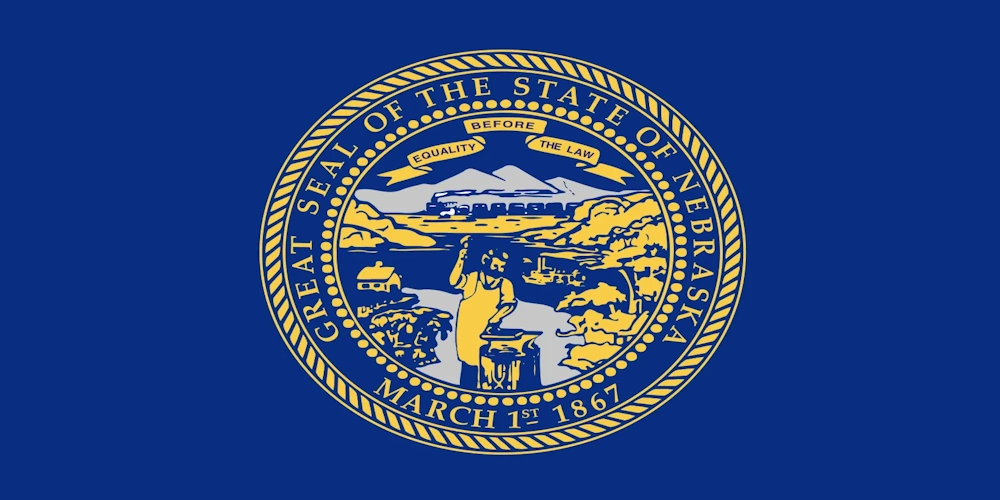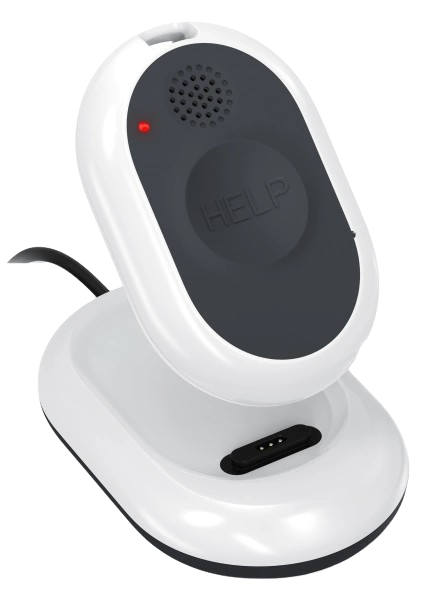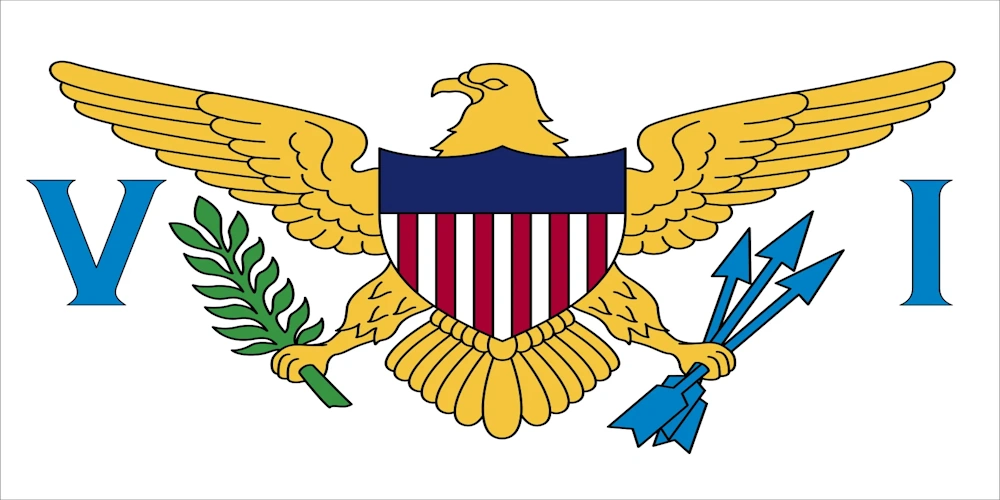In Nebraska, many industries rely on workers who operate alone—whether it’s agricultural workers in the fields, utility technicians maintaining remote infrastructure, or delivery drivers covering large rural areas. These lone workers face unique safety challenges due to the lack of immediate assistance or supervision. Employers must take proactive steps to ensure their safety under federal occupational safety laws.
Nebraska does not have its own OSHA-approved state plan, so all workplace safety and health regulations are enforced by federal OSHA (Occupational Safety and Health Administration). Employers can also look to the Nebraska Department of Labor (NDOL) for additional labor support services and programs promoting safe workplaces.
On This Page
Our Guide To Lone Worker Safety Policy And Legislation In Nebraska
Because Nebraska falls under federal OSHA jurisdiction, employers must comply with OSHA’s standards for workplace safety. While OSHA does not have a regulation that specifically addresses lone workers, the General Duty Clause requires employers to provide a work environment free from recognized hazards—which includes those associated with working alone.
The Nebraska Department of Labor (NDOL) does not directly enforce occupational safety regulations but offers valuable resources related to worker training, employer responsibilities, and injury prevention strategies. These tools help Nebraska businesses implement best practices for workplace safety, including for lone workers.
How Nebraska Defines A Lone Worker
There is no formal lone worker definition under Nebraska labor law or federal OSHA standards. However, the concept typically applies to any employee who performs duties in isolation without close supervision or the ability to quickly summon help during an emergency.
Common lone worker roles in Nebraska include:
- Farm equipment operators and seasonal workers
- Utility maintenance personnel working in remote areas
- Security guards patrolling after-hours facilities
- Home healthcare providers serving patients across rural communities
- Long-haul truck drivers and couriers
- Road construction workers on rural highways
Employers are responsible for identifying which positions qualify as lone work and determining how best to mitigate the risks associated with isolation.
Employing A Lone Worker In Nebraska
Protecting lone workers in Nebraska begins with identifying potential hazards and creating a plan to manage those risks. Employers should establish safety procedures tailored to roles where supervision is limited or where workers are far from immediate assistance.
Recommended best practices include:
- Conducting Risk Assessments: Evaluate environmental, job-specific, and location-based hazards.
- Monitoring and Communication: Implement regular check-ins and provide devices for emergency alerts.
- Emergency Planning: Train lone workers in self-rescue, injury response, and escalation procedures.
- Using Technology: Equip lone workers with monitoring tools like the Safe Lone Worker app.
- Documentation and Training: Develop formal lone worker safety policies and provide ongoing education.
These efforts should align with federal OSHA guidance while utilizing NDOL’s resources for additional workplace support and safety training.
Learn How You Can Protect Your Employees With Loneworker.com

With Loneworker.com you can be equipped with the knowledge and the means to protect your employees and protect your business. Contact us today to learn more about how Loneworker.com can protect you and your employees.
How The Safe Lone Worker App Can Protect Nebraska Lone Workers And Employers
The Safe Lone Worker app helps Nebraska employers protect employees working alone by offering real-time safety monitoring, GPS tracking, customizable check-ins, panic buttons, and automatic fall detection. This technology is especially useful for jobs performed in isolated or high-risk areas—common across Nebraska’s vast rural landscapes.
By integrating this app into their safety protocols, Nebraska businesses can improve worker confidence, speed emergency response times, and better meet OSHA’s expectations for worker protection.
Nebraska Lone Worker Policies
As Nebraska does not have its own OSHA-approved state plan, federal OSHA is the governing authority for workplace safety compliance. Employers must follow OSHA standards and fulfill the General Duty Clause, which requires them to safeguard employees—including lone workers—from foreseeable hazards.
For official guidance, visit OSHA.gov and dol.nebraska.gov. This article is for informational purposes only and does not replace legal advice or official regulatory documentation.
Nebraska Lone Worker Resources
OHS Contact Centre
- 1-866-415-8690
CDC / NIOSH
- 800-232-4636

Affordable Monitoring For Lone Workers In Nebraska

-
 Monitoring Your Employees' Safety
Monitoring Your Employees' Safety
-
 GPS Tracking And Monitoring
GPS Tracking And Monitoring
-
 Man Down Panic Alerts
Man Down Panic Alerts
-
 24/7 Protection Anywhere
24/7 Protection Anywhere
Lone Worker Legislation
Lone Worker Safety Policies And Legislation By State
-
 Alabama State Safety Policies And Legislation
Alabama State Safety Policies And Legislation
-
 Alaska State Safety Policies And Legislation
Alaska State Safety Policies And Legislation
-
 Arizona State Safety Policies And Legislation
Arizona State Safety Policies And Legislation
-
 Arkansas State Safety Policies And Legislation
Arkansas State Safety Policies And Legislation
-
 California State Safety Policies And Legislation
California State Safety Policies And Legislation
-
 Colorado State Safety Policies And Legislation
Colorado State Safety Policies And Legislation
-
 Connecticut State Safety Policies And Legislation
Connecticut State Safety Policies And Legislation
-
 Delaware State Safety Policies And Legislation
Delaware State Safety Policies And Legislation
-
 Florida State Safety Policies And Legislation
Florida State Safety Policies And Legislation
-
 Georgia State Safety Policies And Legislation
Georgia State Safety Policies And Legislation
-
 Hawaii State Safety Policies And Legislation
Hawaii State Safety Policies And Legislation
-
 Idaho State Safety Policies And Legislation
Idaho State Safety Policies And Legislation
-
 Illinois State Safety Policies And Legislation
Illinois State Safety Policies And Legislation
-
 Indiana State Safety Policies And Legislation
Indiana State Safety Policies And Legislation
-
 Iowa State Safety Policies And Legislation
Iowa State Safety Policies And Legislation
-
 Kansas State Safety Policies And Legislation
Kansas State Safety Policies And Legislation
-
 Kentucky State Safety Policies And Legislation
Kentucky State Safety Policies And Legislation
-
 Louisiana State Safety Policies And Legislation
Louisiana State Safety Policies And Legislation
-
 Maine State Safety Policies And Legislation
Maine State Safety Policies And Legislation
-
 Maryland State Safety Policies And Legislation
Maryland State Safety Policies And Legislation
-
 Massachusetts State Safety Policies And Legislation
Massachusetts State Safety Policies And Legislation
-
 Michigan State Safety Policies And Legislation
Michigan State Safety Policies And Legislation
-
 Minnesota State Safety Policies And Legislation
Minnesota State Safety Policies And Legislation
-
 Mississippi State Safety Policies And Legislation
Mississippi State Safety Policies And Legislation
-
 Missouri State Safety Policies And Legislation
Missouri State Safety Policies And Legislation
-
 Montana State Safety Policies And Legislation
Montana State Safety Policies And Legislation
-
 Nebraska State Safety Policies And Legislation
Nebraska State Safety Policies And Legislation
-
 Nevada State Safety Policies And Legislation
Nevada State Safety Policies And Legislation
-
 New Hampshire State Safety Policies And Legislation
New Hampshire State Safety Policies And Legislation
-
 New Jersey State Safety Policies And Legislation
New Jersey State Safety Policies And Legislation
-
 New Mexico State Safety Policies And Legislation
New Mexico State Safety Policies And Legislation
-
 New York State Safety Policies And Legislation
New York State Safety Policies And Legislation
-
 North Carolina State Safety Policies And Legislation
North Carolina State Safety Policies And Legislation
-
 North Dakota State Safety Policies And Legislation
North Dakota State Safety Policies And Legislation
-
 Ohio State Safety Policies And Legislation
Ohio State Safety Policies And Legislation
-
 Oklahoma State Safety Policies And Legislation
Oklahoma State Safety Policies And Legislation
-
 Oregon State Safety Policies And Legislation
Oregon State Safety Policies And Legislation
-
 Pennsylvania State Safety Policies And Legislation
Pennsylvania State Safety Policies And Legislation
-
 Rhode Island State Safety Policies And Legislation
Rhode Island State Safety Policies And Legislation
-
 South Carolina State Safety Policies And Legislation
South Carolina State Safety Policies And Legislation
-
 South Dakota State Safety Policies And Legislation
South Dakota State Safety Policies And Legislation
-
 Tennessee State Safety Policies And Legislation
Tennessee State Safety Policies And Legislation
-
 Texas State Safety Policies And Legislation
Texas State Safety Policies And Legislation
-
 Utah State Safety Policies And Legislation
Utah State Safety Policies And Legislation
-
 Vermont State Safety Policies And Legislation
Vermont State Safety Policies And Legislation
-
 Virginia State Safety Policies And Legislation
Virginia State Safety Policies And Legislation
-
 Washington State Safety Policies And Legislation
Washington State Safety Policies And Legislation
-
 West Virginia State Safety Policies And Legislation
West Virginia State Safety Policies And Legislation
-
 Wisconsin State Safety Policies And Legislation
Wisconsin State Safety Policies And Legislation
-
 Wyoming State Safety Policies And Legislation
Wyoming State Safety Policies And Legislation
-
 American Samoa State Safety Policies And Legislation
American Samoa State Safety Policies And Legislation
-
 Guam State Safety Policies And Legislation
Guam State Safety Policies And Legislation
-
 Northern Mariana Islands State Safety Policies And Legislation
Northern Mariana Islands State Safety Policies And Legislation
-
 Puerto Rico State Safety Policies And Legislation
Puerto Rico State Safety Policies And Legislation
-
 Washington D.C. State Safety Policies And Legislation
Washington D.C. State Safety Policies And Legislation
-
 Virgin Isles State Safety Policies And Legislation
Virgin Isles State Safety Policies And Legislation







